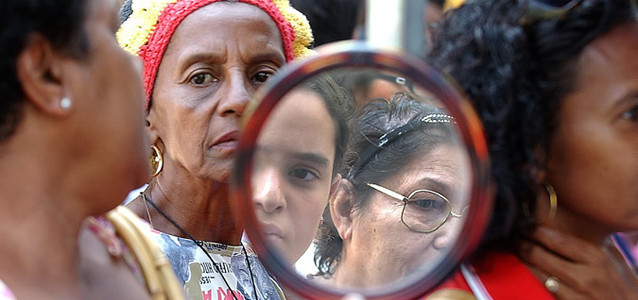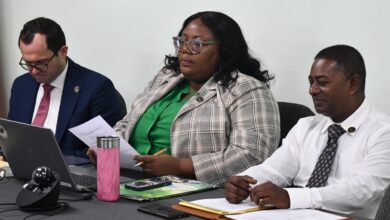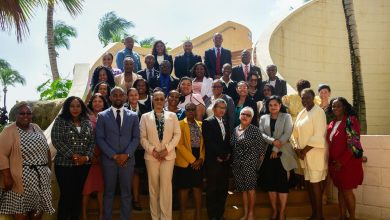The fifty-second meeting of the Presiding Officers of the Regional Conference on Women in Latin America and the Caribbean ended on Friday in the Dominican Republic.
Dominican Republic Information by ECLAC
The country representatives that participated in the fifty-second meeting of the Presiding Officers of the Regional Conference on Women in Latin America and the Caribbean reaffirmed on Friday, July 31 their commitment to ensuring that a transformative gender perspective is incorporated into all the Sustainable Development Goals (SDGs)—which are expected to be approved at the United Nations next September—as well as into their own goals, indicators and implementation mechanisms.
They will also provide follow-up on matters related to women’s autonomy that are specific to the region and are not reflected at a global level in the debate on the post-2015 agenda for development, according to the agreements reached at the meeting inaugurated on Thursday in Santo Domingo, the Dominican Republic. Participants included ministers of women’s affairs and other government authorities along with representatives from international organizations and Dominican civil society.
Delegates at the gathering stated that they intend to take action to implement not only the SDG on the empowerment of women but also the ones related to decent work, productive inclusion, security, and the elimination of poverty in all its dimensions, in order to achieve solid sustainable development.
During the meeting, authorities made progress on preparations for the XIII Regional Conference on Women, which will be held in Uruguay on October 25-28, 2016. The previous conference took place in 2013 in the Dominican Republic.
In this vein, representatives agreed to align their work with that of the Conference on Population and Development in Latin America and the Caribbean (another of ECLAC’s subsidiary bodies) to avoid duplicating efforts, especially in the framework of the post-2015 agenda.
In addition, delegates supported the renovation of the Gender Equality Observatory for Latin America and the Caribbean, created in 2007 at the request of countries and coordinated by the Economic Commission for Latin America and the Caribbean (ECLAC), and proposed to stimulate its use by diverse actors in government, academia and civil society.
Furthermore, authorities agreed to hold the next regional consultation before the Commission on the Status of Women (CSW) meeting in conjunction with UN Women, represented in this meeting by Luiza Carvalho, Regional Director for the Americas and the Caribbean, as part of the next Presiding Officers of the Regional Conference on Women.
Another agreement along the same lines was to “consolidate a common regional position on the defense of women’s rights and commit to sustaining it in other regional and international forums, not allowing setbacks with respect to the progress already made.”
To this effect, foreign relations ministries and other government institutions in the region will get involved in the debates and in implementation of the results of the next conference that will be held in Uruguay. In addition, the alliances and pacts between the mechanisms for women’s progress, government institutions, civil society, the private sector and international organizations will be strengthened to advance on the implementation of the regional agenda for gender equality.
Participants also proposed carrying out national studies that contribute to the debate on gender equality, the post-2015 development agenda, and information and communications technologies (ICT).
The Regional Conference on Women in Latin America and the Caribbean is a subsidiary body of ECLAC that periodically brings together government authorities, representatives of civil society, and organizations from the United Nations system to assess compliance with international and regional accords on gender equality and promote the inclusion of a gender perspective in countries’ public policies.







